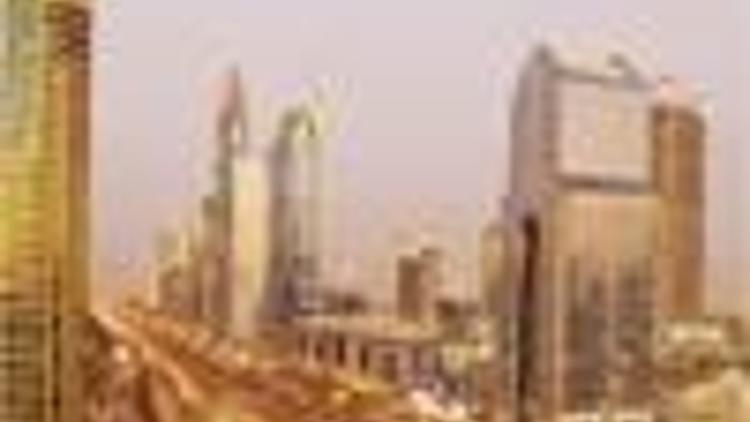Turkey still ’unable to see its advantage’
Güncelleme Tarihi:

Anatolian Agency
Oluşturulma Tarihi: Haziran 06, 2009 00:00
ASHKHABAD - Turkish agriculture as well as health and education are key areas that may draw Gulf capital to the country, according to a Turkish representative of the Islamic Development Bank. Defining Turkey as a ’sleeping giant’that is unable to see the advantages it has, Ahmet Tıktık says trade and industry chambers should be more active in the effort to draw foreign capital into the country.
Capital from the Persian Gulf may invest in the areas of agriculture, education and health in Turkey, said Ahmet Tıktık, vice president of Islamic Development Bank, or IDB, and former undersecretary of the State Planning Organization, or DPT.
"Gulf capital may undertake great investments in Turkey, particularly in agriculture. education and health are also among important investment areas," Tıktık said yesterday responding to the questions from the Anatolia news agency during the annual IDB meetings in the Turkmenistan capital of Ashgabat.
Turkey needs foreign capital, Tıktık said, urging more promotion. Chambers can undertake more responsibility in this respect, he said. "Gulf capital may invest in various areas in Turkey. É The country may become a base for neighboring countries in health and education," he said.
IDB provides resources worth $500 million to $600 million to Turkey annually, Tıktık said, adding that the total contribution reaches $700 million to $800 million with its subsidiaries. Turkey is the IDB’s seventh-largest investor, he said.
Comprehensive restructuring
The IDB has made a restructuring decision by which the country and sector-focused structure will replace the country-focused structure, Tıktık said. The World Bank is a model in the restructuring. "This is, in a sense the World Bank of the Islamic countries."
The bank will focus on four areas in the upcoming 10 years, he said, listing "financing of infrastructure investments of the countries, funding for development of human resources, including education and health, as well as reducing poverty, increasing the share of Islamic banking in overall banking sector, and economic-commercial cooperation."
"Turkey is in a very good position abroad,"he said. "If only we could bring all Turks abroad to make them see the country from outside." He defined Turkey as a country "that is unable to see its advantages," calling it "a sleeping giant."
Noting that Turkey has fulfilled many responsibilities since 2002, Tıktık said: "The reform process has reduced Turkey’s vulnerability. Today, our banks’ capital adequacy is far better than those in Europe and the United States. Moreover, there is also a good supervision system." But, he noted, there was a long way to go. Criticizing Turkey’s education system, which "victimizes students," he stressed the need to deal with a comprehensive education reform.
Noting that unemployment is a tough problem, Tıktık said Turkey is usually forced to hit the brakes after a growth period of three to five years. It is crucial to orient toward products with high added value in industry, according to Tıktık, who requested the Turkish Employment Organization, or İşkur, be reformed to reduce unemployment. The Danish system, which spends around 2 percent of the national income on unemployment and closely monitors its jobless population, can be a model for Turkey, he said.
"The service offered in education and agriculture should cure the problems citizens face in the market. We face tough times in this field," Tıktık said.
"Gulf capital may undertake great investments in Turkey, particularly in agriculture. education and health are also among important investment areas," Tıktık said yesterday responding to the questions from the Anatolia news agency during the annual IDB meetings in the Turkmenistan capital of Ashgabat.
Turkey needs foreign capital, Tıktık said, urging more promotion. Chambers can undertake more responsibility in this respect, he said. "Gulf capital may invest in various areas in Turkey. É The country may become a base for neighboring countries in health and education," he said.
IDB provides resources worth $500 million to $600 million to Turkey annually, Tıktık said, adding that the total contribution reaches $700 million to $800 million with its subsidiaries. Turkey is the IDB’s seventh-largest investor, he said.
Comprehensive restructuring
The IDB has made a restructuring decision by which the country and sector-focused structure will replace the country-focused structure, Tıktık said. The World Bank is a model in the restructuring. "This is, in a sense the World Bank of the Islamic countries."
The bank will focus on four areas in the upcoming 10 years, he said, listing "financing of infrastructure investments of the countries, funding for development of human resources, including education and health, as well as reducing poverty, increasing the share of Islamic banking in overall banking sector, and economic-commercial cooperation."
"Turkey is in a very good position abroad,"he said. "If only we could bring all Turks abroad to make them see the country from outside." He defined Turkey as a country "that is unable to see its advantages," calling it "a sleeping giant."
Noting that Turkey has fulfilled many responsibilities since 2002, Tıktık said: "The reform process has reduced Turkey’s vulnerability. Today, our banks’ capital adequacy is far better than those in Europe and the United States. Moreover, there is also a good supervision system." But, he noted, there was a long way to go. Criticizing Turkey’s education system, which "victimizes students," he stressed the need to deal with a comprehensive education reform.
Noting that unemployment is a tough problem, Tıktık said Turkey is usually forced to hit the brakes after a growth period of three to five years. It is crucial to orient toward products with high added value in industry, according to Tıktık, who requested the Turkish Employment Organization, or İşkur, be reformed to reduce unemployment. The Danish system, which spends around 2 percent of the national income on unemployment and closely monitors its jobless population, can be a model for Turkey, he said.
"The service offered in education and agriculture should cure the problems citizens face in the market. We face tough times in this field," Tıktık said.

